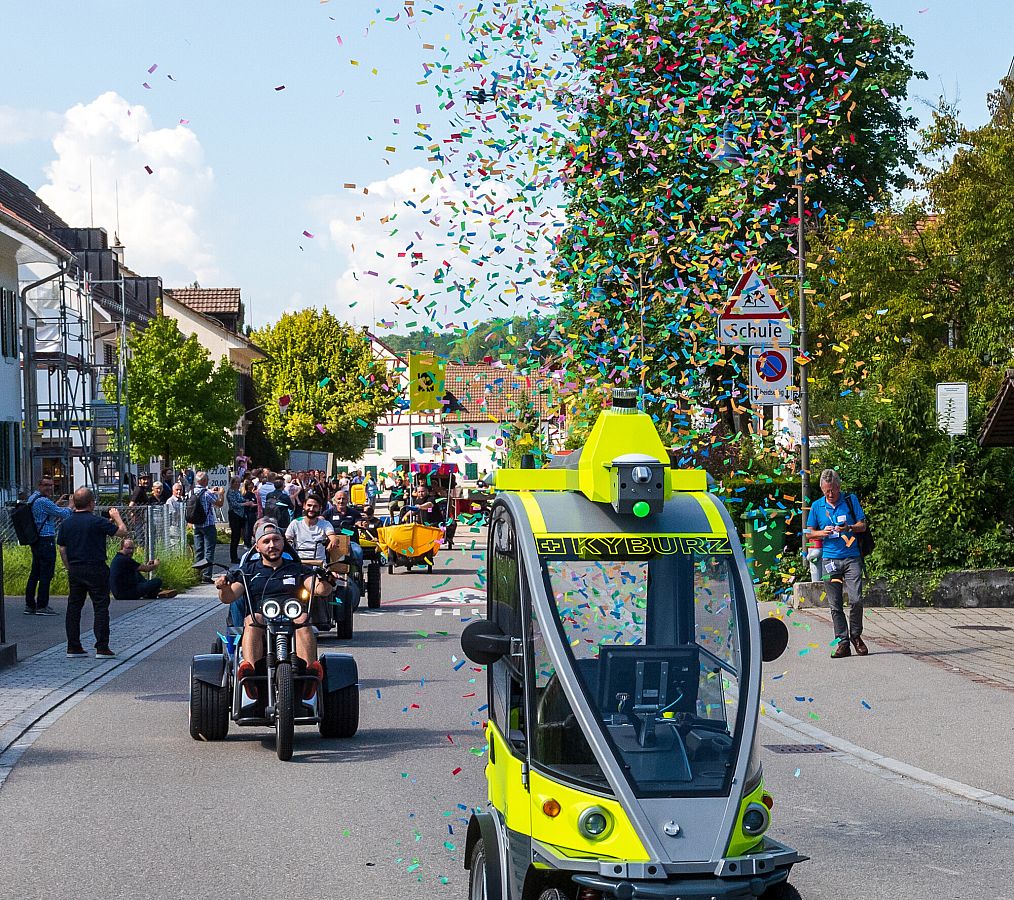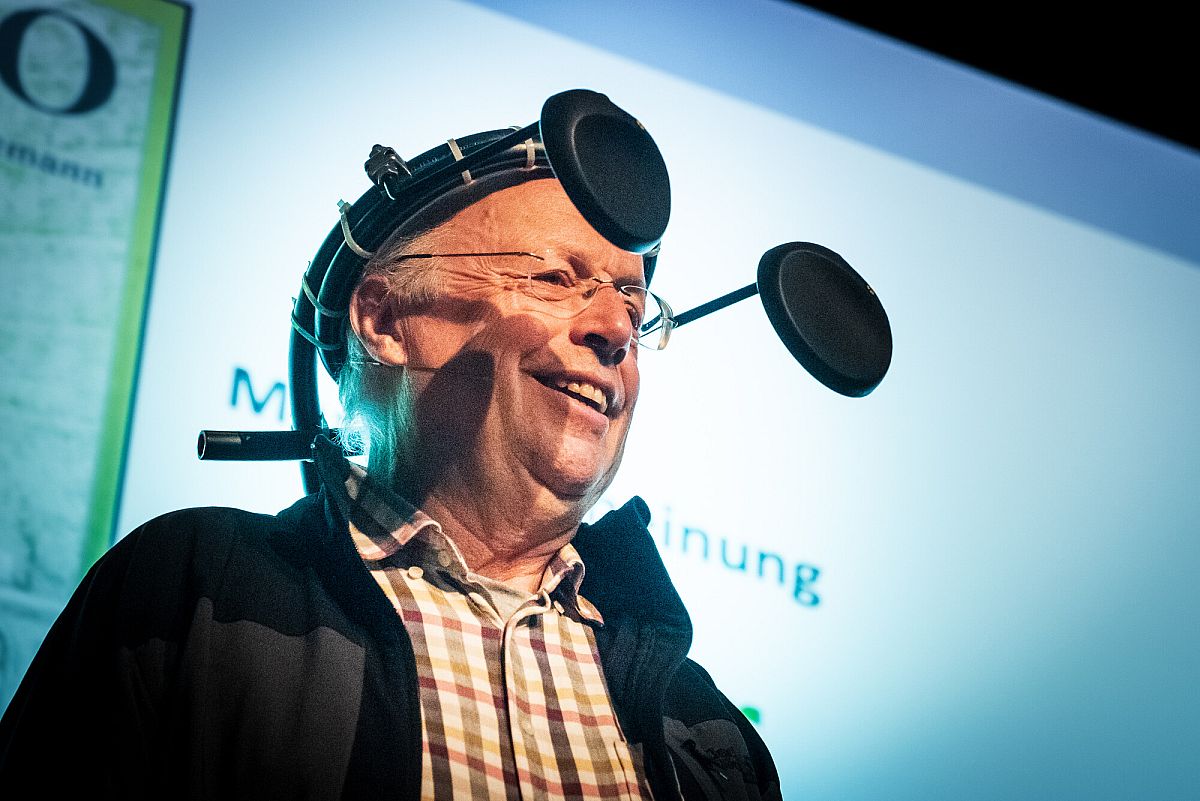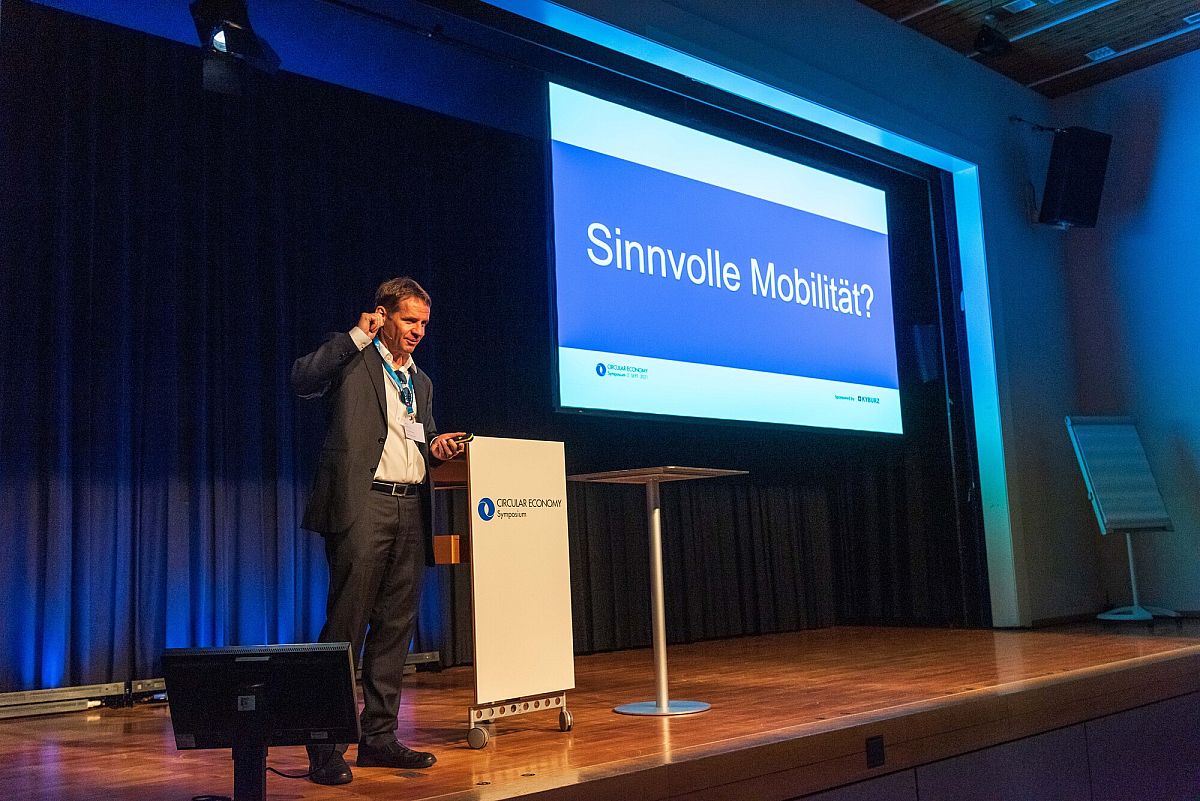CE Symposium, committed to sustainability

Spring 2020. The Coronavirus breaks out. The Swiss Moto trade fair in February can still be held normally. We are registered for the Geneva Motor Show, we are setting up the whole stand and the vehicles are already downstairs - the show is cancelled. It was precisely at this show that we wanted to present some innovations. Disappointed, we pack up. On the same day, I decide to hold the Circular Economy Symposium in Freienstein on 3 September 2020. Dani Honegger, Bruno Streich and Erik Wilhelm are immediately enthusiastic. The organization is fun, just as it should be. We have set our goal by asking: "How can science, technology and economy contribute to finding ways to promote happy coexistence in a healthy environment?". We write to possible speakers and have resounding success.
With Dr. Michael Braungart we have a crowd-pleasing professor who claims to have invented the Circular Economy.
Dr Christian Larsen talks about human health versus the health of the earth.
Dr. Matthias Binswanger talks about economy and ecology - unfortunately, this lecture is too short.
Dr. Reto Wyss introduces us to his EFT, a technique that anyone can use to transform their emotions, and Laura Koch talks about sustainable nutrition.
In the afternoon, Rolf Widmer and Marcel Gauch talk about the consumption of raw materials - especially the amount of water that is still available on our planet.
After that, there are many workshops, one better than the other. Unfortunately, you can only choose one, but that is intentional.
At the same time, our battery recycling plant is presented at a press conference - also a resounding success. It was precisely through our own symposium that I learned how crucial the circular economy is for our future. At present, we still live in a disposable society. We extract raw materials from our earth, process them, consume them and finally throw them away. We can only do this until the most important raw materials are used up. After that, it's over. But if we develop our technical products in such a way that after the end of their use, the products can be returned to the original materials as much as possible, then the cycle is closed, and the materials can be used for as long as we want. This is basically just a matter of knowledge and focus. Our recycling process for lithium batteries, with which we can now recover 91% of all raw materials sorted by type, is a real milestone in battery recycling.

We end the day full of impressions and suggestions. For me personally, the symposium brings suggestions that will take several years to implement. Many visitors are enthusiastic and wish for a continuation of the symposium.
We decide to deal with different topics. In 2021, "Meaningful Mobility" was discussed. Professor Spitzer talks about our inner drive and why we need to move. Andreas Reinhard motivates us to start new things, to dare the unknown and not to be afraid of failure. The astronaut, Professor Ulrich Walter, who was in space with the space shuttle, makes it clear with what passion he conducts his research and with what dedication he devotes himself to the exploration of our universe. It was particularly important to me to use a space shuttle flight to show that in mobility, the energy consideration must always be made over the entire system. If the launch phase of a flight is not considered, the shuttle is the most energy-efficient means of travel there is. Without propulsion, it covers many millions of kilometres. It is only in the launch phase that it needs enormous amounts of fuel. Marcel Gauch and Rolf Widmer spoke about raw materials and the energy used for our travel activities. During this symposium, we launched a unique competition where 17 teams were asked to develop their vision of the future of mobility based on our DXP vehicles. The competition was a great success, and the closing parade was led by our autonomous PLUS II vehicle.
At this year's symposium, the theme will be "Meaningful Nutrition". A lot of healing can be done with nutrition if it is properly tailored to our needs. Food production can be very energy intensive, or it can be environmentally friendly.
With this symposium, I want to build a bridge between science and us average citizens. We have serious problems to solve, but at the same time we must manage our everyday lives. Where do we set the priority? How do we deal with them? Only if we become aware of our own actions do we have a chance to shape our future in a sustainable way. Only if we succeed in this endeavour will humanity have a chance to survive. We have been far too unconsciously preoccupied with our personal problems for long enough. Now it is time to learn and grow up.

I learned from this:
- Every setback presents a new chance.
- Learning and teaching is really fun.
- We are right at the front and can help influence the future.
